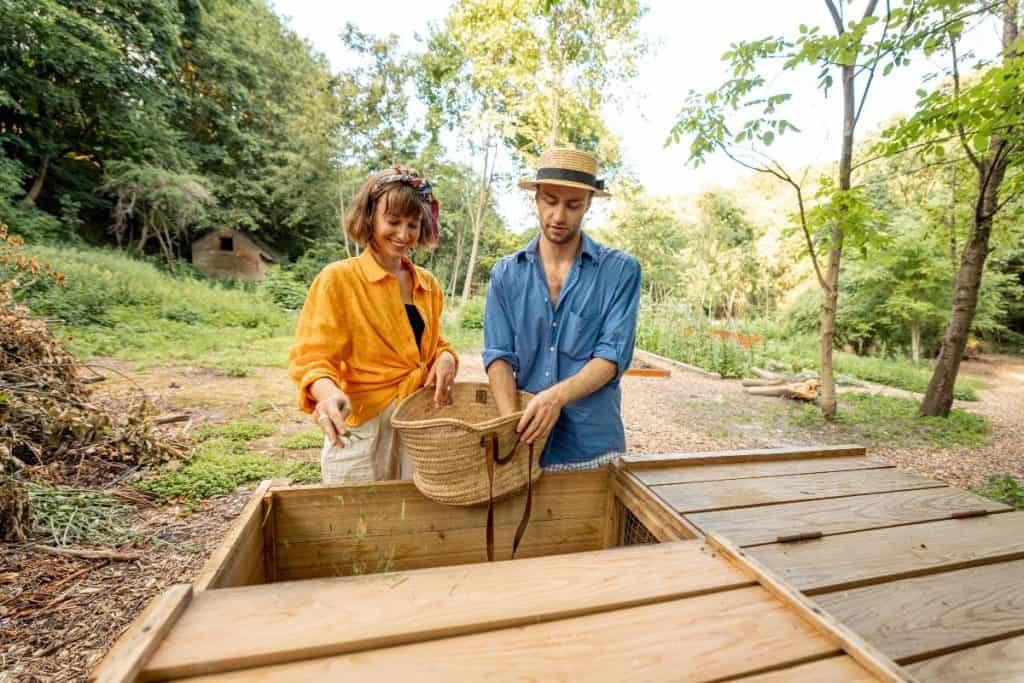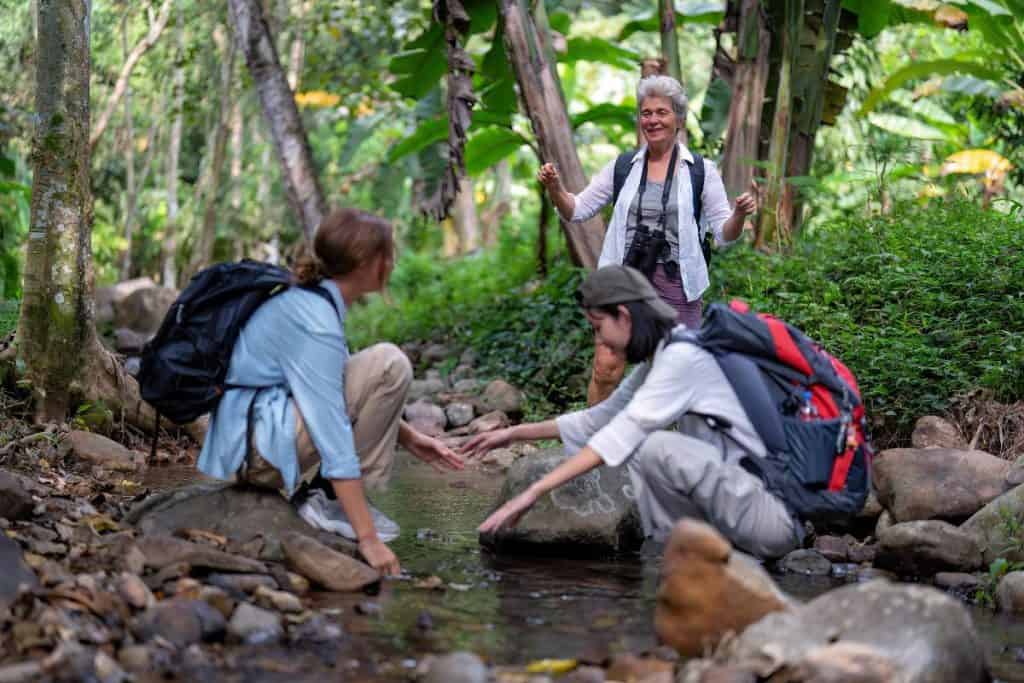What Is Sustainable Tourism in Thailand?
As an expat living in Thailand for over 20 years, I’ve been amazed to witness firsthand the country’s efforts to preserve its spectacular natural landscapes, vibrant culture, and welcoming communities for future generations. With tourism numbers rising rapidly to nearly 40 million in 2019, Thailand has cemented itself as a top destination for its gorgeous beaches, dynamic cities, warm hospitality, and world-famous cuisine. However, the increasing popularity has inevitably caused growing pains and sustainability challenges.
Key Takeaways
- Thailand has implemented impressive sustainability initiatives to protect destinations from over-tourism while supporting local communities
- Travelers must show respect for Thai culture and people, follow appropriate conduct when visiting temples, and dress modestly
- Simple yet impactful efforts like minimizing plastic use, taking public transport, and not littering can drastically reduce environmental footprint
Exploring Thailand Responsibly: A Guide to Sustainable Travel
From speaking to local Thai friends, I’ve come to better understand the complex balancing act required to manage responsible tourism growth while allowing communities to benefit economically. There are always improvements to be made, but I’m continually impressed by Thailand’s proactive initiatives, from both governmental policies and conscientious businesses, to tackle issues head-on through smart regulations and incentives promoting environmental awareness. As travelers, it’s also our responsibility to educate ourselves on how we can positively contribute during our stays by making ethical choices.
Thailand Leading Sustainability Efforts in Southeast Asia
Over the past decade, Thailand’s government and local authorities have implemented diverse sustainability programs showing their commitment to protecting destinations from overtourism, while allowing visitors to keep enjoying the beauty of the Land of Smiles for years to come.
Popular initiatives include:
- Temporarily closing world-famous Maya Bay after extensive ecological damage, allowing native wildlife and coral reefs time to recover
- Banning smoking on many of Thailand’s top beaches to reduce pollution and cigarette waste
- Eliminating single-use plastics from national parks to cut down on trash overflow
Thai tourism businesses have followed suit by incorporating eco-friendly practices into their operations. For example, an explosion of environment and wildlife conservation projects allow travelers to contribute directly to critical research studies, protection programs, and rehabilitation centers focused on everything from marine life to elephants.
Resorts are ramping up sustainability efforts through renewable energy sources, local hiring, and profit shares funding local schools and temples. Eco-hotels certified by Green Hotel Standards help visitors easily identify properties committed to responsible water, waste and energy usage.
8 Ways Tourists Can Travel Conscientiously in Thailand
While systemic changes are essential, individual tourist choices before and during trips also make a monumental difference. By taking responsibility for our own environmental and cultural footprints, we show respect for the Land of Smiles and ensure our welcome lasts for generations more.
As Thailand’s tourism ministry urges, remembering simple mottoes like “Reduce, Reuse, Recycle” drastically helps to protect the country’s future.
1. Minimize Plastic Consumption
Avoid purchasing water bottles and instead carry a reusable container that can be endlessly refilled. Stylish options made of stainless steel, glass, and BPA-free plastics are perfect for staving off dehydration in Thailand’s tropical climate.
2. Dress and Act Appropriately When Visiting Temples
Cover shoulders and knees out of deference when entering sacred sites like the Grand Palace and Wat Pho in Bangkok. Shoes should be removed before entering structures with Buddha images, with feet pointing away.
3. Support Social Enterprises Empowering Local Artisans
Beautiful Thai handicrafts like ceramics, textiles, and carvings make wonderful mementos. Seek out fair-trade certified shops directly benefiting artists and ethical cooperatives like Thai Craft Fair Trade.
4. Take Public Transportation Over Private
Opt for public ferries, trains, and buses instead of chartered transport like taxis and tuk-tuks. This cuts down on traffic congestion and emissions, while allowing money to go towards municipal infrastructure improvements.

5. Don’t Discard Waste Irresponsibly on Land or Sea
Littering remains a huge problem, severely impacting Thailand’s otherwise idyllic landscapes. Dispose all trash appropriately in bins. When swimming or snorkeling, don’t touch or stand on delicate coral reefs.
6. Frequent Local Restaurants and Shops
Venturing to smaller family-owned establishments puts more tourist dollars directly into local communities compared to big chains. Chat with owners to discover hidden gems travelers normally miss. Food tours and cooking classes are fantastic for trying authentic dishes you can recreate at home.
7. Contribute to Community Development Initiatives
Many grassroots non-profits across Thailand like OpenMind Projects work tirelessly to support vulnerable groups with vocational training, education scholarships, childcare, and counseling services. Volunteer time or donate if possible.
8. Visit National Parks and Protected Areas Respectfully
Thailand contains stunning natural environments boasting indigenous species found nowhere else on Earth. Prevent disturbances by not feeding or getting too close to wildlife. Making purchases from local stores instead of bringing food helps remote communities.
While Thailand faces ongoing tourism challenges, clear improvements continue being made as visitors increasingly demand sustainable travel options. By taking simple actions ourselves and voting with our wallets to support conscientious businesses, we can positively shape the industry landscape for decades to come. With some planning and cultural awareness, Thailand offers endless possibilities for unforgettable and ethical trips of a lifetime.

FAQs
What exactly is community-based tourism in Thailand?
Community-based tourism refers to tourist activities, accommodations and services that directly benefit rural villages, tribes and local cooperatives. Income goes straight to families instead of outside companies.
How can travelers avoid unethical elephant attractions?
Do extensive research beforehand on elephant camps, avoiding venues allowing riding or bathing interactions. Support reputable sanctuaries like Elephant Nature Park focused exclusively on protection.
Why is it important to dress appropriately in Thailand?
Thais deeply value modesty and etiquette. Avoid revealing clothing when away from beaches. Both women and men should cover shoulders and knees when sightseeing, especially at sacred landmarks.
What eco-friendly certifications help identify sustainable hotels?
Resorts and hotels displaying credentials like Green Hotel Standards or Thailand Tourism Awards pass rigorous assessments across environmental and social criteria. This makes selecting responsibly straightforward.
What should someone visiting Thailand for the first time absolutely experience?
Nothing showcases Thailand better than its legendary food culture. Sign up for a cooking class or food tour in Bangkok, Chiang Mai or beach destinations to master flavorful dishes and appreciate intricate culinary craft.
Conclusion
I hope this overview has provided helpful tips for traveling respectfully and sustainably in captivating Thailand. Preserving this welcoming country’s cultural and environmental wonders for future generations is a shared priority.
If you have any other questions while planning your ethical adventures, from personalized trip advice to simply exchanging ideas on supporting local communities, I’m always happy to help however I can. Please subscribe to our newsletter or contact us if you’d like to continue the conversation.
Wishing you safe and meaningful journeys ahead. Through understanding and making mindful choices as tourists, we can protect the treasures of the Land of Smiles. I look forward to seeing Thailand prosper for years to come!






